Hissing sounds coming from a car's AC can cause a person to freak out a bit. It's not something that they expect to hear inside their vehicles. So we did significant research into this situation and found an answer to what could be the cause.
A hissing sound from an AC isn't always a troubling sound for car owners. If this sound occurs after the car is turned off, it's your car's way of equalizing pressure. But hissing sounds can be problematic when they're continuous and usually signal one of these three issues:
- Refrigerant leaks
- Interval valve leak
- Compressor problems
However, listing these problems out doesn't provide a complete picture of the problem. So it's essential to dive deeper into your AC unit's potential ailment. Our following discussions will give a good idea of what to expect when going in for repairs.
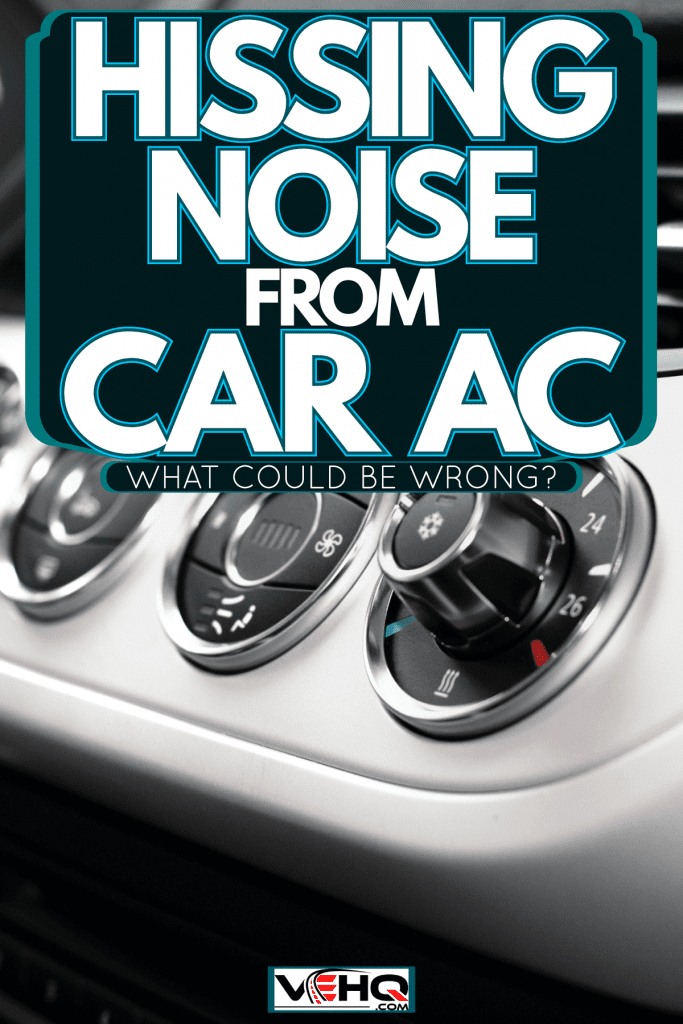
Causes of Hissing Noise From Car AC
As we mentioned earlier, hissing sounds aren't usually an issue. It's common to hear as it's part of your car's pressure-equalizing process. Most car owners should expect the sound to occur after turning off the car.
The hissing sound comes from a low-pressure side and high-pressure side within your AC's system when it's running. Your AC unit's refrigerant, such as freon, will move between these sides divided by an orifice tube or expansion valve.
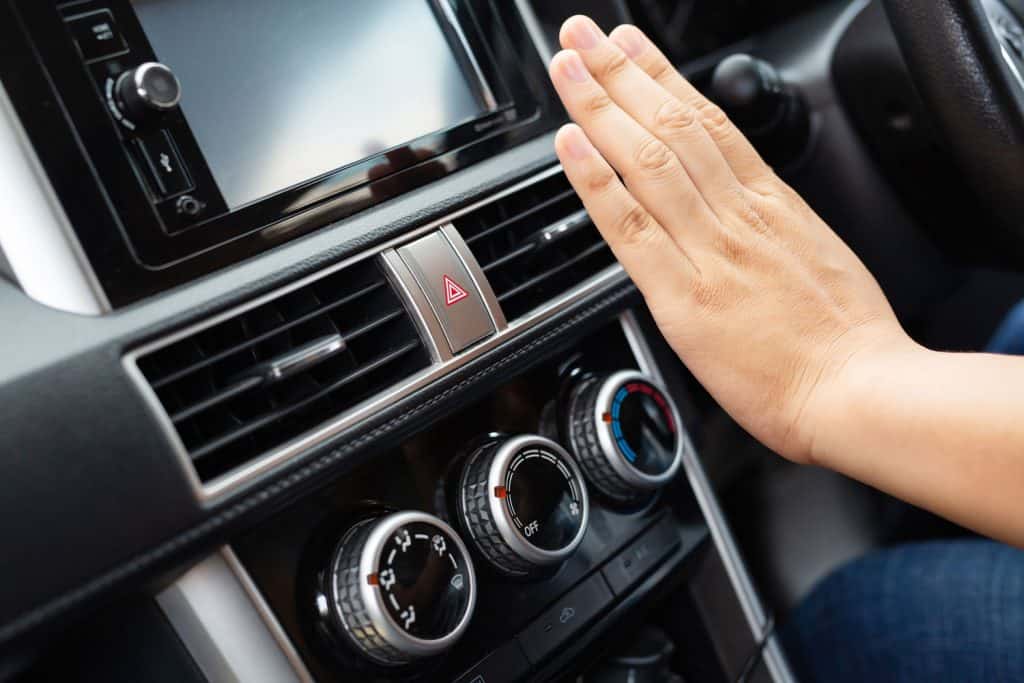
Once your car's turned off, the freon will move from the high-pressure side to the lower pressure one and equalize. It's a normal process that shouldn't cause any concerns for a car owner.
But things can start to become dicey when the noise occurs continuously or at any other point. In these cases, hissing noises are a warning sound and signal several issues. Here's a quick overview of the more common ones:
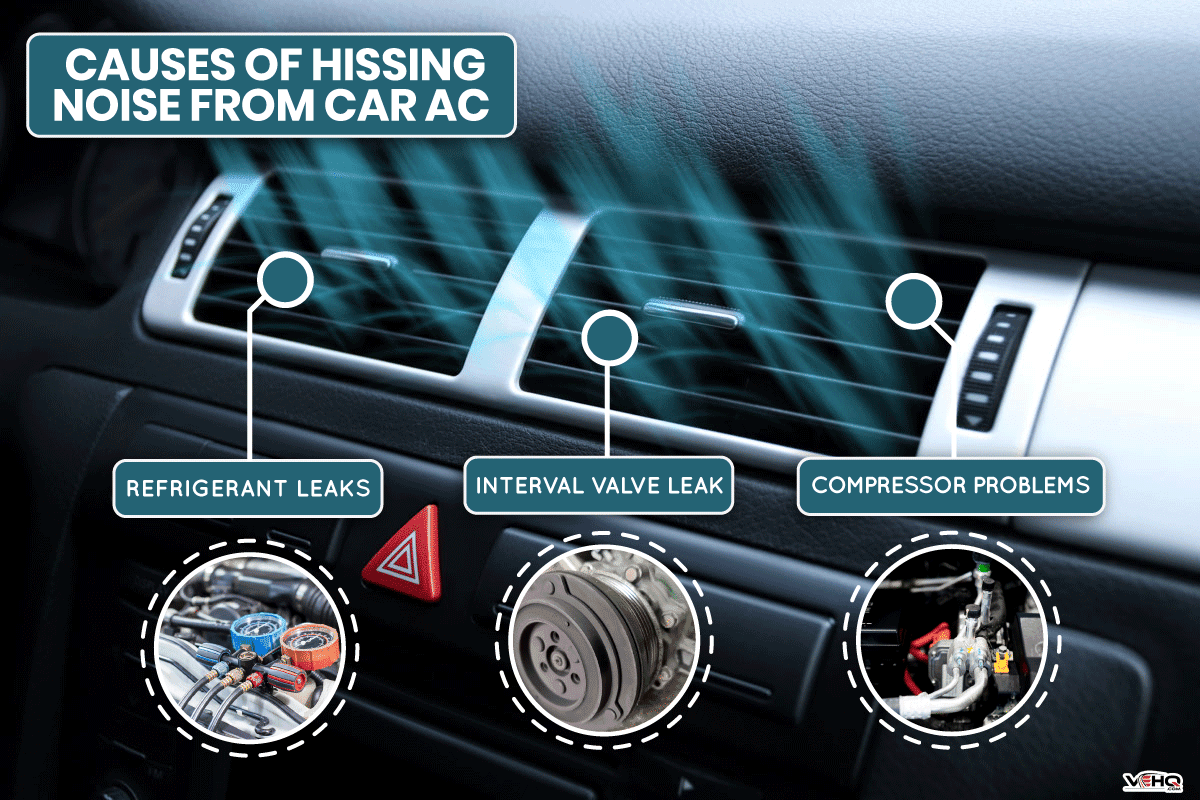
1. Refrigerant Leaks
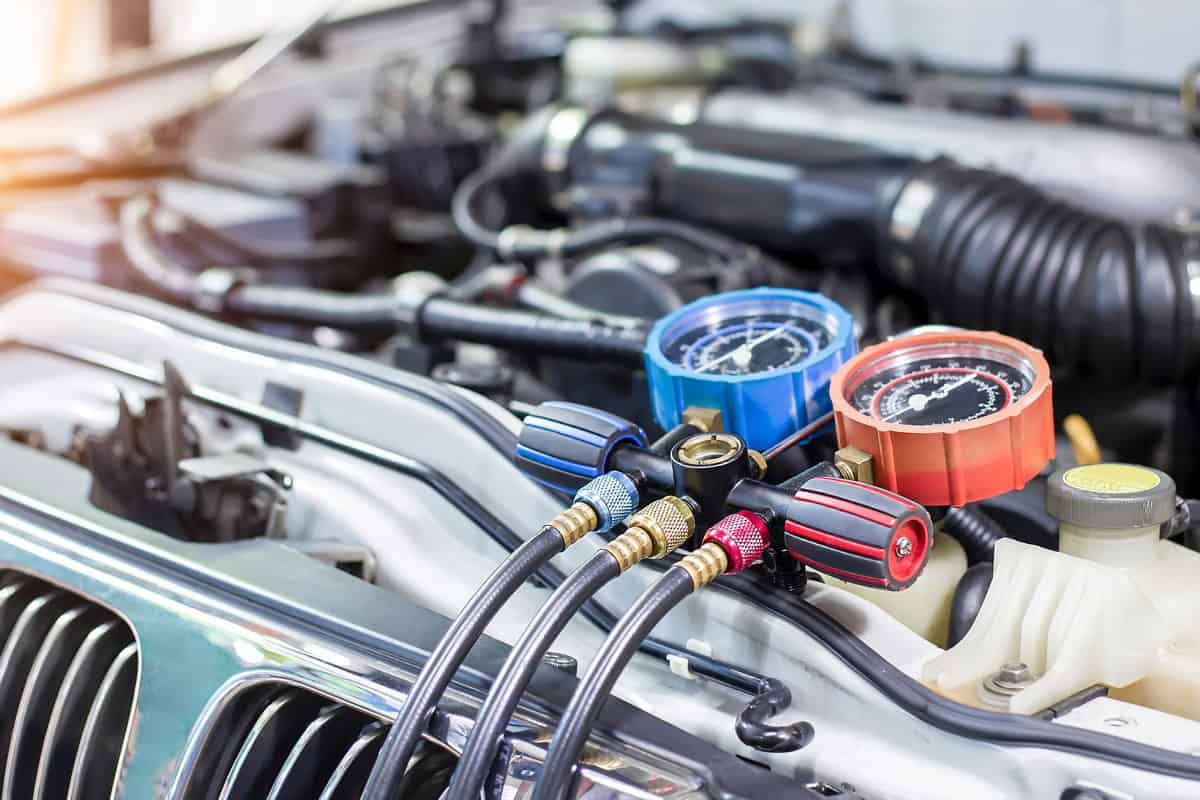
Your AC unit's issue could be escaping gas. Leaks along your AC unit's refrigerant lines will allow gas refrigerants under high pressure to escape. As you might imagine, this situation is considered a massive issue.
If this does occur, the air conditioner will lose its refrigerant charge. It can then lead to compressor damage and put the entire unit in jeopardy. You'll need to repair these leaks as soon as possible.
2. Internal Valve Leak
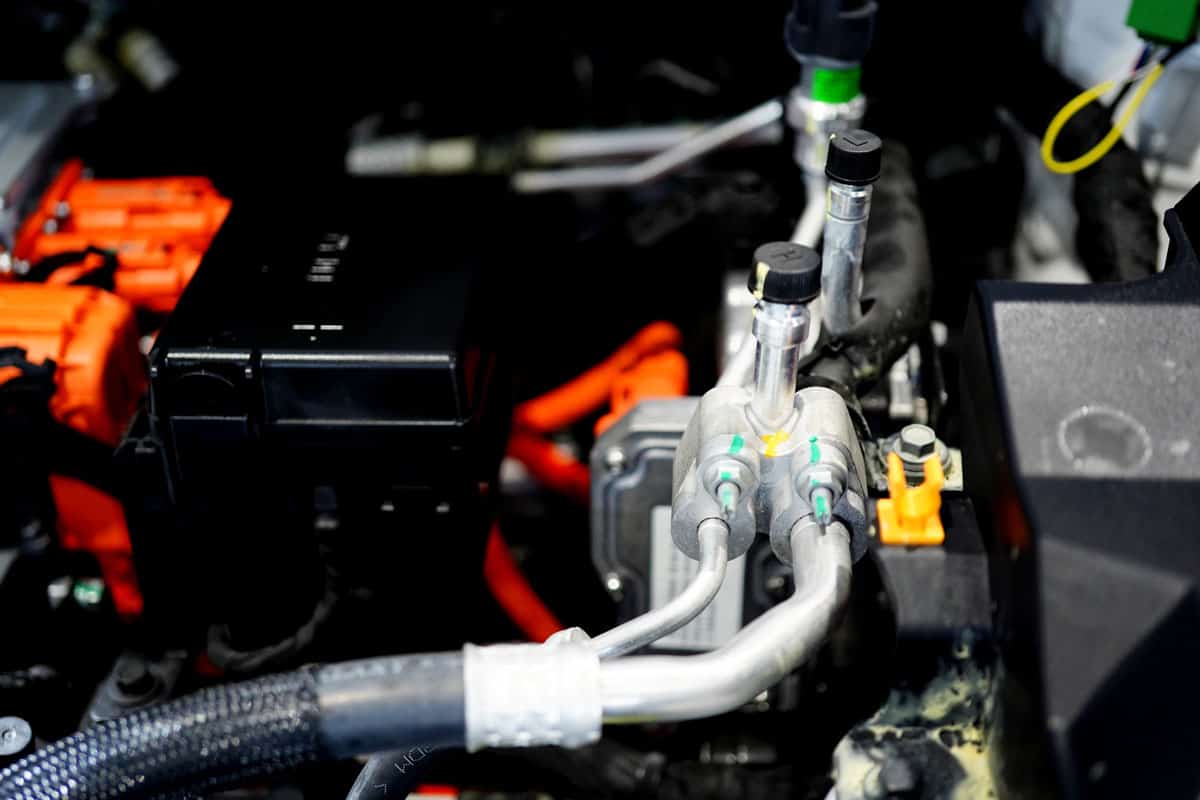
The next possible issue would be your AC unit's compressor valve leaking. If this does happen, it'll cause a hissing sound that you shouldn't ignore. This valve controls the pressurization of your AC unit's refrigerant.
As a result, this compressor valve will need repairs immediately. If not, this leak could compromise the entire unit and cause significant damage.
3. Compressor Problems
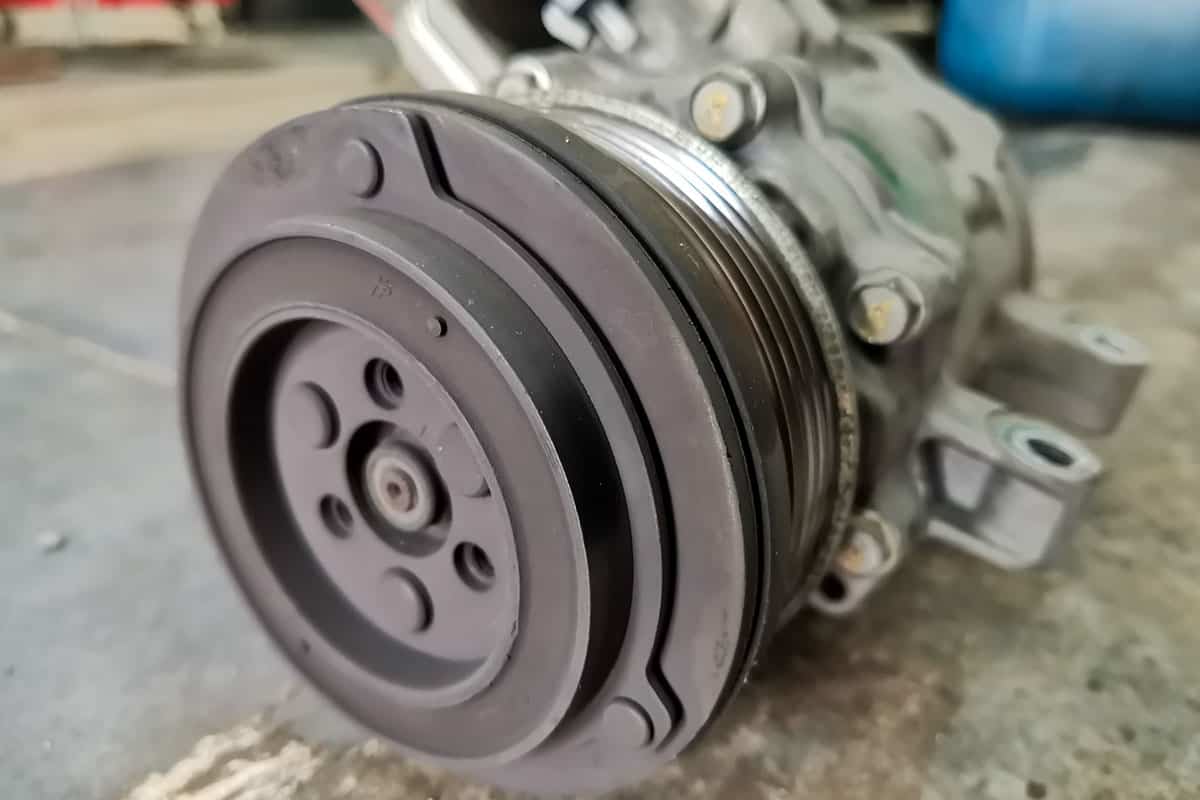
Lastly, the compressor itself might be malfunctioning. It's often a byproduct of the pressure inside being way too high. As most car owners know, the compressor is the most expensive part of an AC unit to repair.
Many car owners find it more cost-effective to replace the entire AC unit than repairing only the compressor. However, if the hissing sound turns into a shrieking noise, don't hesitate to turn off the AC immediately. You'll need to fix it right away.
How Do I Fix Hissing Noise in My Car AC?
The obvious next question would be how someone would repair their car's AC? Well, we recommend letting the experts do it. If you hear a continuous hissing sound coming from the AC, turn it off and bring the car to a mechanic for repairs.
It's also essential to refrain from turning it on until an expert has looked at it. This problem isn't only to mess around with as a car owner. Don't attempt repairs unless you have significant experience dealing with car AC units.
If you have hissing sounds coming from other parts of your car, check out our post "Hissing Noise From Car But Stops When Braking – What Could Be Wrong?". It'll provide a detailed insight into what could be causing those noises.
Other Problematic Car AC Noises
Hissing sounds aren't the only ones known to come from AC units. Vehicle owners should be aware of the other noises and their meanings to ensure better AC maintenance. Here's a quick look at some common ones and what they signal:
- Loud squealing or screeching: These sounds are prevalent when turning on a malfunctioning AC. It often points to an issue with your serpentine belt or drive belt.
- Buzzing: A buzzing noise could indicate having too much Freon in your AC system. Drivers often notice this sound when accelerating or turning on the unit.
- Knocking or clicking: One of the easier noises to fix on your own. Clicking or knocking sounds indicate loose mounting bolts or other parts not being tight enough. Nothing a car owner can't deal with on their own.
How Much Does it Cost to Fix an AC Leak in a Car?
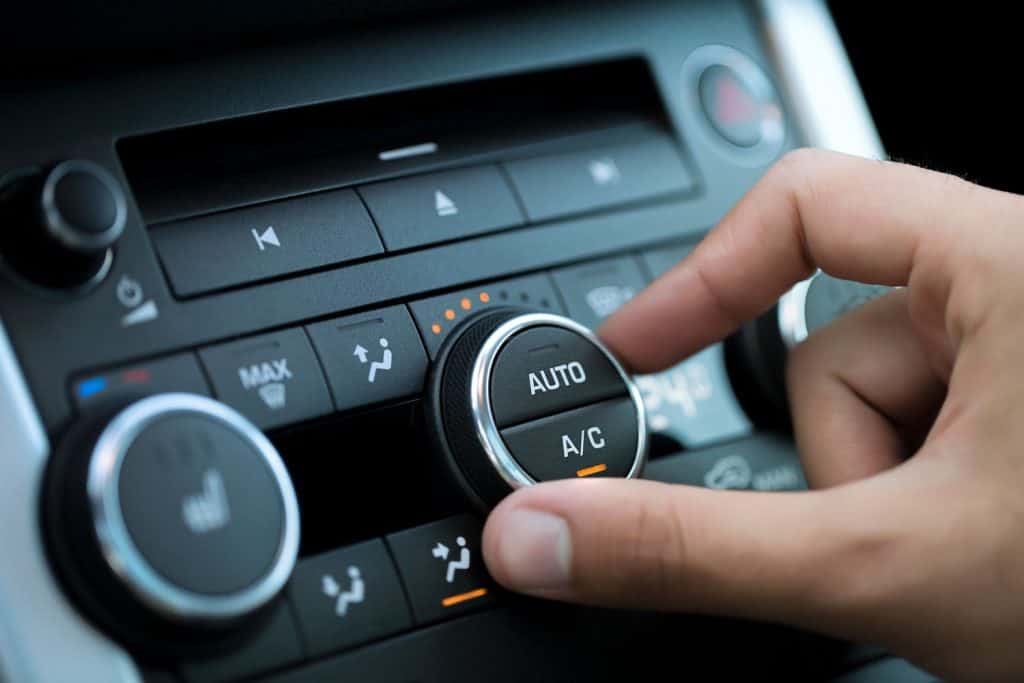
Car owners can expect to spend between $150 and $800 repairing an AC leak. The final amount will depend on its severity and damage. You also might have to buy additional parts to repair the AC for effective performance: patching the leak isn't always enough.
For instance, you might need to install a new sensor, hose, compressor, or condenser. It can vary significantly from car to car. But the main point is this repair isn't going to come cheap.
If you're an RV owner looking to replace an RV AC conditioner, check out our post "How Much Does It Cost To Replace An RV Air Conditioner?" It should answer all your questions.
Is Car AC Supposed to Leak Water?
On occasion, your vehicle's air conditioner will leak water outside the car. But it can become problematic when you start seeing water inside the vehicle after turning on your AC. Another worrisome sight would be more water than usual outside your car.
It leads to the question of what could be causing these problematic situations. In most cases, it comes down to one of five causes:
1. Refrigerant Level is Low
Your car's AC will require a certain amount of refrigerant to provide circulating cool air effectively. If the refrigerant level becomes too low, it'll decrease the pressure on your car's AC system. Lower pressure is a bad sign because it'll cause the evaporator coils to ice up and freeze.
If the coils do freeze, the condensate drain pan can overflow and leak an abnormal amount of water. It's not a good situation for anyone involved.
2. Condensate Drain isn't Connected to the Vent System Correctly
Another possible cause of why your car's AC is leaking water inside your vehicle revolves around the condensate drain. It's not uncommon for this part to cause leakage when it's not correctly connected to the vent system. If this occurs, it can't drain the water where it's supposed to go, outside and under your car.
3. Condensate Drain Pipe has a Blockage
If water's leaking inside your vehicle, it's a warning that your car's condensate drain might have a blockage issue. It becomes necessary to check the condensate drain when your car's floor becomes wet whenever you turn on the AC.
Blocked condensate drain pipes cause this issue by keeping the water from draining outside your vehicle. Instead, it makes the water overflow inside the car.
4. Blocked/Dirty Air Filters
Your auto AC's air filter will gather and collect dirt due to moisture or dust. It's just the natural process of regular exposure inside a vehicle. As a result, it's essential to have your AC checked and serviced once a year to keep these filters clean.
Air filters with too much-accumulated debris will cause a blockage. It can then freeze up the AC's evaporator coils, causing excess water to overflow from the condensate drain.
5. Faulty Seals
Your AC system's rubber or plastic seals could be the root of your problem. Water can easily seep out of the system and into your car's cabin area if these fail. You'll soon notice water pooling up under the vehicle's passenger side floor mats.
How Often Should You Put Freon in Your Car?
You shouldn't have to put Freon into your car very often. Only once every few years at most will do the trick. You probably have a leak issue if you notice the AC is losing its potency even after being topped off.
How long does a car air conditioner last?
Most car owners should expect their AC units to last at least ten years. But it can last even longer by putting a heightened focus on its upkeep. If you notice an issue, don't let it linger. Instead, it's best to fix and address it immediately.
In Closing
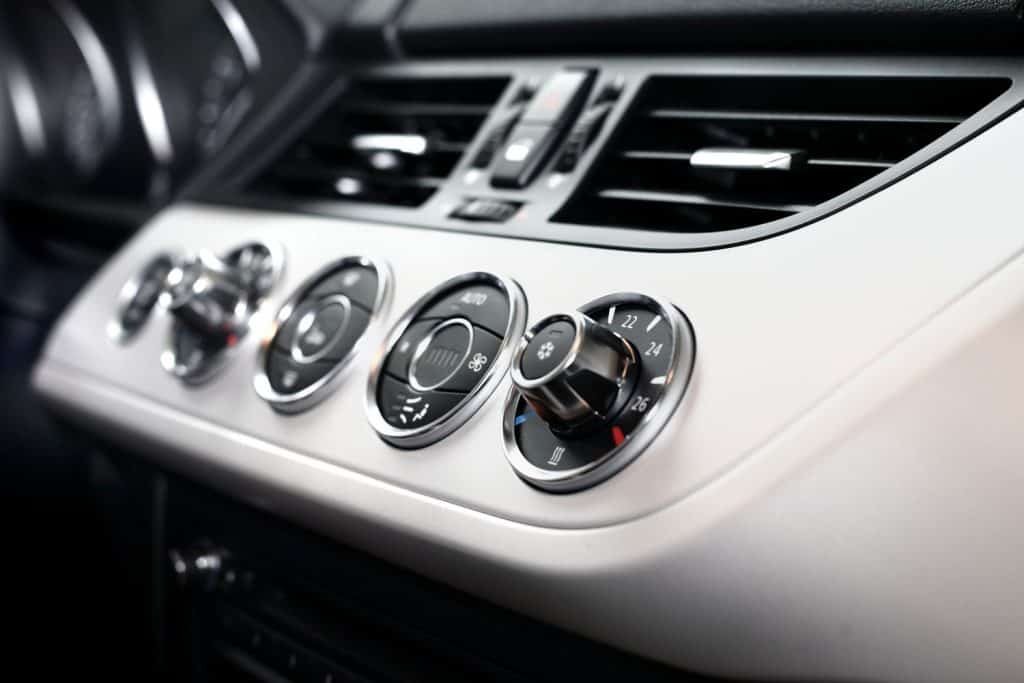
We hope our discussions about hissing sounds and car AC units answered your questions. But if you still have one, please feel free to leave a comment. We'll make sure to answer each post as quickly as possible. Thanks for reading!

Thank you for the information on ac/c systems,